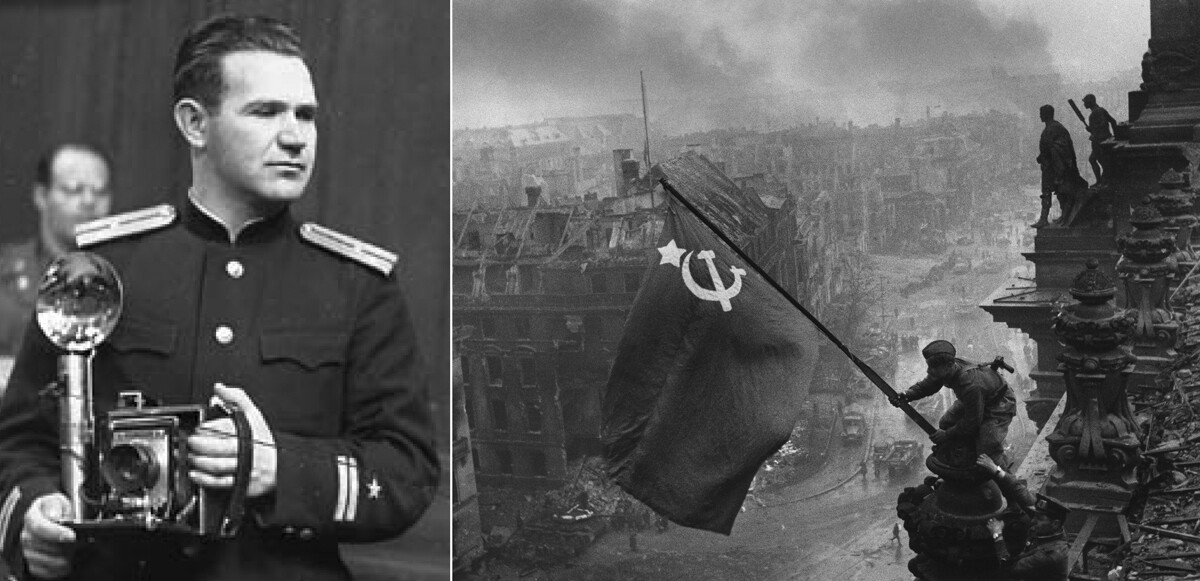A locksmith by trade, the self-taught photographer Evgeny Khaldei spent 1,418 days in the war, becoming the only Soviet photographer to have gone through it all, and filmed the action since the first to the very last day, including the Potsdam Conference, the German capitulation, the Nuremberg trials and so on.

At first, no one doubted Khaldei’s achievements. He was awarded numerous honors for his work. However, a year later, the mood toward Jews in government structures had begun to grow sour fast. And even the Soviet news agency, TASS, where Khaldei worked, followed suit. “A mediocre correspondent that barely managed to do his part” was how he was characterized during his firing.
The photographer had fallen into disfavor with authorities and practically abandoned for years. At one point, he even feared for his safety, and destroyed all the negatives containing images of people who faced Stalin’s infamous purges. He did odd jobs until his retirement in 1976.
Khaldei would only be remembered abroad, on the anniversary of the Great Victory, 50 years later. At the special invitation of the President of France, in 1995, he was welcomed at the international photography festival in Perpignan, where he was named Knight of the Order of Arts and Letters for his achievements. Half a year before his death in 1997, he was honored in Europe with a film about his life, and a book, in the US.
Dear readers,
Our website and social media accounts are under threat of being restricted or banned, due to the current circumstances. So, to keep up with our latest content, simply do the following:
If using any of Russia Beyond's content, partly or in full, always provide an active hyperlink to the original material.
Subscribe
to our newsletter!
Get the week's best stories straight to your inbox